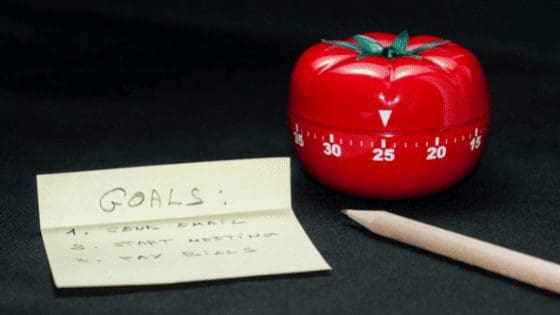Let’s face it – life is hectic, and it’s hard to fit everything in. At the same time, we’re bombarded with demands on our time and attention. There is increasing pressure to get more done in less time, leaving us feeling stressed and overwhelmed.
Multitasking is a common technique we use when responding to these pressures and demands on our time due to our belief that it will help us achieve more in less time. Although multitasking may seem the solution, science has shown that it, or at least the way we define it, is a myth.
What is multitasking?
Multitasking is the performance of more than one task simultaneously, and you can conjure up a list of things you multitask daily. For example, it’s not uncommon for people to text while involved in another. It can often be seen as a necessary skill to succeed, and you will even see phrases like “Must be able to multitask on many job descriptions”.
But multitasking and the benefits we think it provides are a myth.
The myth of multitasking
Although it may seem appealing to be able to do several things at once, research shows that multitasking isn’t what we think it is, and it can be very ineffective and harm our mental states.
Rapid switching
By multitasking (or at least attempting to), it may feel like you are getting many things done at once, but your brain is rapidly moving back and forth between each task. This is because your brain can only concentrate on one task at a time.
So, when you multitask, it may feel like you are completing numerous simultaneously. However, in reality, you are processing each action in rapid succession – switching back and forth from one activity to another.
More effort, less output
Research on brain development and concentration shows that splitting our attention between more than one task can actually make us less productive. Constant switching means a continuous need to regain focus on the tasks at hand. Even if that only takes a second each time, those seconds add up, and it takes longer to do both things correctly than it would if we focused entirely on each task in isolation – particularly when it comes to more complex tasks.
This can also cause us to become frustrated when we are aware that we aren’t fully concentrating on what we want or need to get done.

Increased mistakes
That start-stop process of rapid switching also leaves us more prone to making mistakes. Have you ever been typing while trying to listen to another conversation, and you typed words from that conversation rather than what you intended to type? Or how many types have you burnt yourself trying to do something else while also cooking dinner?
Sometimes mistakes are minimal, but you still have to go back and correct those mistakes, which takes time and only if you catch them.
It’s exhausting
According to psychologist Arthur Markman, a University of Austin, Texas professor, dividing our attention across multiple activities is more taxing on the brain than unitasking.
Cognitive and emotional control
Researchers at the University of Sussex looked at the time people spent multitasking on multiple devices (such as texting while watching TV) to MRI scans of their brains. The results showed that people who multitask often had less brain density in the anterior cingulate cortex – an area responsible for empathy and cognitive and emotional control.
ADT
Psychiatrist Edward Hallowel, M.D., believes the struggle to maintain concentration is because many of us are developing what he calls Attention Deficit Trait (ADT). Unlike Attention Deficit Disorder (ADD or ADHD), which is neurological, ADT is brought on when our attention is constantly pulled away from tasks by constant interruptions and distractions.
Developing more productive habits
So now we know that tackling multiple tasks simultaneously spreads our focus, puts more stress on the brain, takes us longer and increases the risks of mistakes being made; what can we do to help ensure we get everything we need to do?
Here are some alternative ways to improve your productivity without multitasking and help you counteract excessive tasks, interruptions and distractions.
Deep focus and unitasking
Rather than trying to do lots of things at once, focus on one thing to the exclusion of all others. Intentionally reducing the other information we take in enables our brains to work as efficiently as possible.
Use anything and everything at your disposal to remove distractions: put your phone on do not disturb, switch your email notifications off and commit to doing just one activity for at least 25-30 minutes.

Taking breaks
When we’ve got a never-ending to-do list, taking breaks can feel like wasting precious time. However, relaxing our focus and taking breaks increases our ability to concentrate, helps us to retain information and increases our productivity.
Plus, if you’ve been unitasking, a quick break is an ideal way to get something else off your tasks list, such as taking a telephone call or putting a wash on if you’re lucky enough to work from home.
Hydration
The link between water and cognitive performance has been long established. However, research by the University of East London and the University of Westminster showed that drinking just 300ml of water can boost attention by up to 25%! So, next time you struggle to concentrate, try taking a break and drinking a glass of water.
Mindfulness
Another way we can improve our attention and ability to concentrate is by practising mindfulness. When we practice mindfulness, we focus on the present moment. If our mind starts to wander, we gently bring our attention back to a singular point of focus – usually our breathing.
Research shows that ongoing mindfulness practice strengthens our ability to focus and concentrate on whatever we put our minds to.
Check our articles on How to Achieve Email Zen, The Pomodoro Technique and 7 Ultimate Time Management Tips for other productivity tips.
Take the time to try different techniques and learn what works best for you. Then develop a set of strategies to optimise your time and attention. You’ll soon find that you are much more productive and less overwhelmed.
Book a free discovery call here if you’d like to discuss how we can support you in developing effective strategies, book a free discovery call here.
Published 22nd November 2022.




